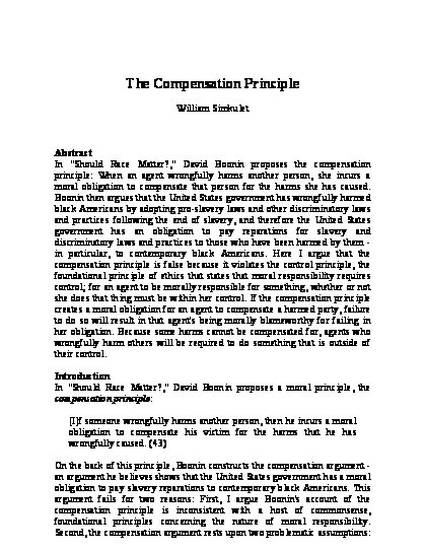
In "Should Race Matter?," David Boonin proposes the compensation principle: When an agent wrongfully harms another person, she incurs a moral obligation to compensate that person for the harms she has caused. Boonin then argues that the United States government has wrongfully harmed black Americans by adopting pro-slavery laws and other discriminatory laws and practices following the end of slavery, and therefore the United States government has an obligation to pay reparations for slavery and discriminatory laws and practices to those who have been harmed by them - in particular, to contemporary black Americans. Here I argue that the compensation principle is false because it violates the control principle, the foundational principle of ethics that states that moral responsibility requires control; for an agent to be morally responsible for something, whether or not she does that thing must be within her control. If the compensation principle creates a moral obligation for an agent to compensate a harmed party, failure to do so will result in that agent's being morally blameworthy for failing in her obligation. Because some harms cannot be compensated for, agents who wrongfully harm others will be required to do something that is outside of their control.
Available at: http://works.bepress.com/william-simkulet/47/
